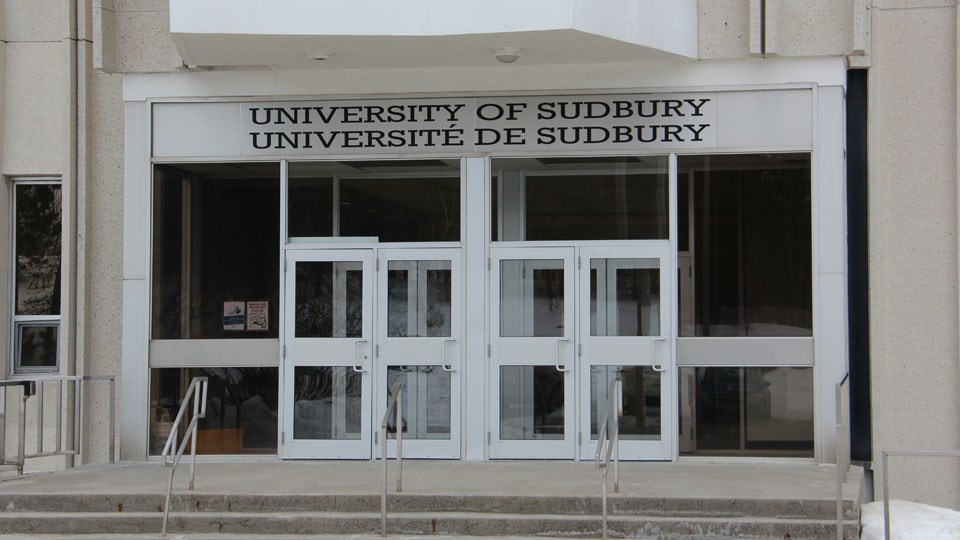All federal money going to Laurentian University for its French-language programs should be “immediately transferred to the University of Sudbury” as the former federated university attempts to transform itself into a French-language university.
That was one of the recommendations made June 3 by a spokesperson for Coalition nord-ontarienne pour une université de langue française before the House of Commons Official Languages Committee.
The same coalition also asks that all French-language programming currently offered by Laurentian University, including programs recently cut by LU, “be fully and comprehensively and immediately transferred to the University of Sudbury.”
Laurentian University announced Feb. 1 it is insolvent, and had filed for creditor protection under the Companies Creditors’ Arrangement Act (CCAA), a move that’s unprecedented in the post-secondary sector.
Then, in early April, Laurentian announced it was terminating the six-decade-old agreement with the federated universities operating on its campus -- the University of Sudbury, Huntington University and Thorneloe University.
The federated universities until recently offered courses that counted toward Laurentian degrees, but LU says it can service its students in-house, and needs the money that was being transferred to its federated partners for its own operations.
As described above, the University of Sudbury is now focusing on transforming itself into a French-language university for Northern Ontario.
Speaking on behalf of Coalition nord-ontarienne pour une université de langue française, Denis Constantineau said the Ontario government should intervene and suspend the cuts at Laurentian, “find the funding necessary to appease creditors, and facilitate the transfer of programs that we have indicated.
“A provincial implementation committee should be struck and given the task of providing a structure for delivering French-language education in the north. The commission could provide a transition plan.”
Constantineau said Laurentian, which cut more than two dozen French-language programs in April, has lost the confidence of the community.
“These events show the limitations of bilingual institutions since federal transfers for official language minorities never come with an accountability framework,” he said.
“It’s not surprising that French money is often paying for snow removal in some cities. Promoting French-language programs is not always a priority for bilingual institutions. We saw that Laurentian flagged in that for years in spite of many people’s efforts.
“This is why Francophones in our regions have been for 50 years calling for a fully French-language university. As a result of these events, the University of Sudbury announced it wanted to be a university for, by and with Francophones.”
University of Sudbury board of regents chair Pierre Riopel, who also spoke as a witness at the House of Commons Official Languages Committee on June 3, said U of S has received support for this project from across Canada and abroad.
“The time has time to carry out this project of a French-language university because it has been coveted, imagined and wished for by several generations of Franco-Ontarians,” Riopel said.
“It is time to create our French-language university in Sudbury by, for and with franco-Ontarians. This is an historic event.”
While the University of Sudbury wants all of Laurentian’s French-language programs to be transferred under its umbrella, Laurentian has proven resistant to this idea, having rejected it several months ago.
Laurentian University president Robert Haché, also a witness at the House of Commons Official Languages Committee June 3, was asked by Conservative MP Steven Blaney if he’d be willing to transfer Laurentian’s French-language programs.
Blaney, the vice-chair of the committee, pointed out that the committee had heard from representatives of the Francophone community in Northern Ontario who said Laurentian “is no longer able to be the beacon of the French community in Northern Ontario.”
“Yes, we do have work to do to rebuild trust, and re-earn the confidence and trust of the community,” Haché said.
“We are deploying all of our efforts and energy for our Francophone students and our Francophone programs, which are a cornerstone of Laurentian’s operations.
“At Laurentian we will continue to offer French-language programs for the future of the community in Northern Ontario.”
Earlier in the meeting, Haché said Laurentian continues to offer 28 undergraduate programs and five graduate programs in French. He said fewer than 10 per cent of all students enrolled in French-language programs were affected by LU’s cuts.
Haché added that the programs that were cut had low enrolment, sometimes just two or three students. “We have kept the programs in which students are interested,” he said.
However, the Laurentian president said he wanted to underscore that enrolment in LU’s French-language programs has been increasing.
“This matters greatly,” he said. “Contrary to the trend in Northern Ontario’s declining population base, strong French-language program enrolment is a sign that Laurentian’s francophone students and their communities remain engaged in what La Laurentienne has to offer.”
